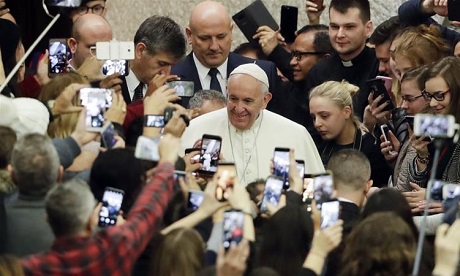The Vatican summit on the protection of minors has ended and the Church’s future direction is set.
In his final address at the Summit, Pope Francis committed the church to do everything possible to eradicate sexual abuse.
He said he wants it gone – not just from the church itself but from society as a whole.
“We are facing a universal problem, tragically present almost everywhere and affecting everyone,” Francis said to the patriarchs, cardinals, bishops and priests who participated in the summit.
Concrete actions
The work to ensure new laws and concrete actions are in place is just beginning, Summit Moderator, Father Federico Lombardi SJ says.
Lombardi, says proposed changes include a new set of laws and guidelines concerning child protection, which will be published shortly by the pope for the Vatican City State.
He says these measures will be issued “motu proprio,” on the pope’s own accord.
In addition, Lombardi says a handbook for bishops will be issued, prepared by the Congregation for the Doctrine of the Faith.
It will list a set of guidelines to “help bishops around the world clearly understand their duties and tasks” when handling cases of abuse, Lombardi says.
In addition, the pope wants to:
- amend the current law concerning the crime of a cleric acquiring, possessing or distributing pornographic images of minors by extending the age from 14 years old to include young people under the age of 18
- establish task forces “made up of competent persons” that will assist dioceses and episcopal conferences “that find it difficult to confront the problems and produce initiatives for the protection of minors,” especially when they lack the needed resources and skilled personnel.
Women influential
Three of the summit’s nine keynote speeches were given by women, two of whom are mothers.
They spoke of the “hypocrisy” and “mediocrity” revealed by the abuse scandals and the “disgraceful, shameful” situation in which the Church finds itself.
One of the women spoke of the laity’s role in promoting accountability, saying laypersons ought to have a greater role to play, while also noting their presence doesn’t necessarily guarantee things will get better.
Copernican revolution
In his homily at the four-day summit’s closing Mass, Australian Archbishop Mark Coleridge said that, like Nicolaus Copernicus’ discovery that the earth revolves around the sun, the church needs a “Copernican revolution” where “those who have been abused do not revolve around the church but the church around them.
“This is the necessary conversion, the true revolution and the great grace, which can open for the church a new season of mission.”
Several survivors and advocacy groups were disappointed more direct mandates were not issued, especially in ordering bishops to implement already existing laws.
Source
Additional reading




